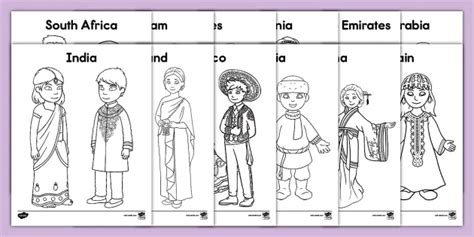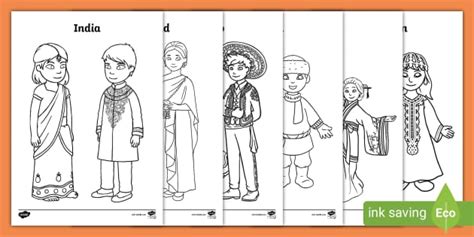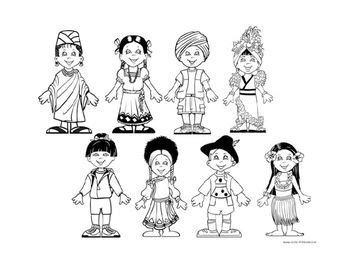Cultural diversity enriches our world, offering a vast tapestry of traditions, customs, and languages that define the unique identity of each community. Understanding these diverse elements allows us to appreciate the rich heritage and shared humanity across continents. Traditions shape cultural identity, customs reflect societal values, and languages serve as the heart of culture, binding communities together. However, in a rapidly globalizing world, these cultural practices face both challenges and opportunities for preservation and adaptation. This exploration delves into why cultural diversity matters, how it impacts our global society, and what we can learn from embracing and exchanging cultural practices across borders.
Delve into this topic with solaviral.com to gain a thorough understanding.
1. Why Cultural Diversity Matters
Cultural diversity is essential for a richer, more inclusive world. It broadens our understanding of global communities, enriching our collective knowledge and experience. Exposure to diverse cultures cultivates empathy, tolerance, and open-mindedness, encouraging individuals to embrace different perspectives and appreciate the value of traditions and lifestyles beyond their own. This diversity also fuels innovation and creativity, blending ideas, practices, and beliefs to spark new ways of thinking and problem-solving. Furthermore, cultural diversity fosters social cohesion by promoting intercultural dialogue and cooperation, crucial for peaceful coexistence in an interconnected world. It preserves the vibrant tapestry of human heritage, ensuring that unique traditions, languages, and customs flourish amidst globalizing influences. By understanding and valuing cultural diversity, we pave the way for a more inclusive and harmonious global society where individuals from all backgrounds can contribute to and benefit from shared human progress.

2. How Traditions Shape Cultural Identity
Traditions are crucial to shaping cultural identity, fostering a sense of belonging and continuity within a community. They represent the practices, rituals, and customs passed down through generations, encapsulating the values, beliefs, and historical experiences that define a culture. These traditions connect individuals to their heritage, offering a shared narrative that strengthens communal bonds and identity. Whether celebrating festivals, engaging in religious rites, or adhering to unique social customs, traditions provide a framework for comprehending the world and one’s place within it.
In a world of diverse cultures, traditions are more than just customs; they are sources of pride and distinction, setting communities apart. These living connections to the past, constantly adapting while preserving essential elements, resonate with cultural memory. Through participation in traditional practices, individuals reaffirm their cultural roots, fostering a collective sense of belonging. In a world marked by rapid change, traditions provide stability and a means to safeguard cultural uniqueness, enabling communities to maintain their distinct identities in the face of globalization’s homogenizing influences.

3. What Customs Reveal About Societal Values
Customs act as a window into a culture’s societal values, revealing what a community holds dear and its worldview. They encompass everyday practices, social norms, and etiquette that guide behavior within a society, reflecting deeply held beliefs about respect, honor, family, and community. For example, customs surrounding hospitality can illustrate a culture’s emphasis on kindness and generosity, while practices related to marriage or mourning rituals can reveal attitudes toward family, life, and death.
Customs serve as a vital bridge between tradition and innovation, illustrating how societies evolve while safeguarding their core values. Through customs, individuals acquire knowledge about their societal roles and obligations, contributing to social unity and continuity. By delving into these practices, we gain a deeper understanding of a society’s collective mindset, comprehending not only what people do but also the underlying motivations behind their actions. This understanding fosters greater empathy and respect for the diverse expressions of human values across the globe.

4. Why Language is the Heart of Culture
Language lies at the heart of culture, acting as the primary vehicle for individuals to express their identity, thoughts, beliefs, and emotions. It serves as a conduit for the transmission of cultural knowledge, traditions, and values across generations. Through language, stories, songs, proverbs, and rituals are passed down, shaping and preserving a community’s heritage and worldview. It is language that allows people to connect, form social bonds, and communicate shared experiences and emotions.
Language acts as a unique lens through which we view the world, with each linguistic group providing distinct perspectives on how to perceive, comprehend, and engage with reality. This influence extends to shaping individuals’ thoughts, behaviors, and interactions within their environment and with others. The loss of a language often signifies the loss of cultural wisdom, history, and identity. Consequently, preserving languages is essential for safeguarding cultural diversity and fostering the continued flourishing of human expression in our interconnected world.
5. How Globalization Impacts Cultural Practices
Globalization exerts a significant influence on cultural practices, presenting both challenges and opportunities for cultural preservation and adaptation. On the one hand, globalization facilitates cultural exchange, allowing individuals from diverse backgrounds to share and experience a wide range of traditions, customs, and languages. This interconnectedness cultivates a greater understanding and appreciation of cultural diversity, empowering communities to embrace new practices and ideas while enhancing their own unique cultural expressions.
Globalization, while fostering interconnectedness, can also pose a threat to cultural practices, especially those of smaller, marginalized communities. The proliferation of dominant global cultures, often propelled by media, technology, and commerce, can eclipse and dilute local traditions and customs, leading to a decline in cultural distinctiveness. The pressure to conform to global norms may result in traditional practices being altered or abandoned entirely, as younger generations are swayed by global trends.
Despite the challenges posed by globalization, many cultures are finding creative ways to adapt and preserve their traditions. This involves integrating modern influences with their existing customs, enabling communities to maintain their cultural identity while engaging with the global community. The influence of globalization on cultural practices is multifaceted, presenting both potential threats and opportunities for cultural diversity in our increasingly interconnected world.
6. What We Can Learn from Cultural Exchange
Cultural exchange provides an unparalleled opportunity to learn about empathy, understanding, and the vast tapestry of human diversity. Immersing ourselves in different cultures allows us to gain valuable insights into alternative ways of life, thought processes, and problem-solving approaches. This exposure broadens our perspectives, enabling us to view the world through a more inclusive lens and recognize the multitude of ways people express their identities and values. Through cultural exchange, mutual respect is encouraged as we develop a deeper appreciation for the unique traditions, customs, and languages that define diverse communities.
Cultural exchange is a powerful driver of innovation and creativity. By bringing together diverse ideas, practices, and beliefs, it fosters the emergence of novel concepts and approaches that benefit everyone. This is evident in areas like culinary arts, where global cuisine has been enriched by cross-cultural exchanges, and the visual arts, where the fusion of different styles has produced groundbreaking works. Furthermore, cultural exchange plays a crucial role in dismantling stereotypes and prejudices, paving the way for greater social harmony and cooperation.
Through shared learning, we foster a global community that is both interconnected and empathetic. This exchange of cultures allows us to appreciate our diverse identities while recognizing our common humanity. Ultimately, by embracing cultural exchange, we create a world that is more inclusive, peaceful, and vibrant, where all individuals contribute to and benefit from the richness of shared human experiences.
In conclusion, exploring global cultures deepens our understanding of the diverse traditions, customs, and languages that define human societies. By valuing cultural diversity, we enhance our global empathy, preserve unique identities, and foster innovative thinking. While globalization presents both opportunities and challenges, embracing cultural exchange allows us to celebrate our shared humanity while respecting and preserving cultural uniqueness. Ultimately, appreciating and learning from different cultures enriches our collective experience and contributes to a more harmonious and inclusive world.
solaviral.com